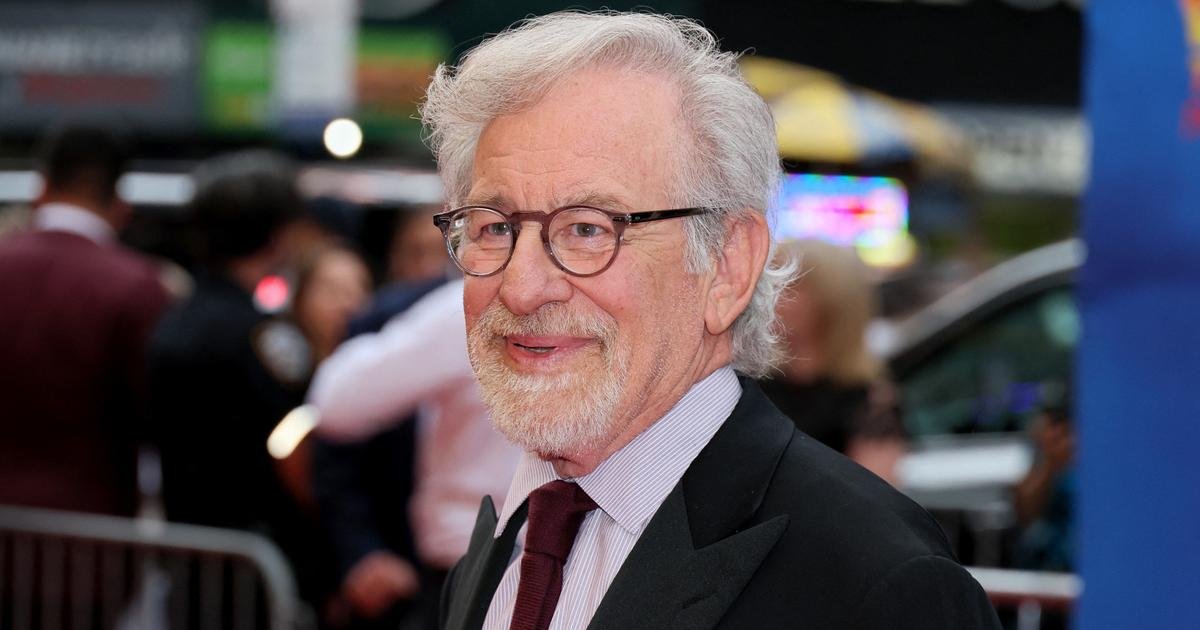The two-time Oscar-winning American director aims to trace the entire history of the existence of life on Earth with this new documentary series. But above all, to warn our contemporaries about the dangers that await them with the environmental crisis.
In a breathtaking and memorable format, Life on our planetA new Netflix documentary series produced by Steven Spielberg, aims to trace the entire history of the existence of life on Earth. The eight-episode documentary, which has been available on the streaming platform worldwide since October 25, gives viewers a look at five previous mass extinctions recreated with powerful special effects.
Narration given by the actor Morgan FreemanIt’s a reminder that, for over 4 billion years, life has always found a way to overcome disasters, from harsh ice ages to meteorite impacts.
Species that managed to escape extinction each time engaged in a fierce struggle. Game of Thronesto ensure the dominance of the new age.
“Initially, what we wanted to do was to adapt his life story into a TV series. To make it a production that we want to watch in one sitting. Because this story is so dramatic.”, explains writer and producer Dan Tapster. Before stating: ““I think and hope that this is something we have achieved, which is probably a first in natural history.”
Also readOur review of The Fabelmans, Steven Spielberg’s life in cinema, on Canal+
Inside Life on our planettension and suspense “victory» Species surprise others for at least a few hundred thousand years. The influence of Spielberg’s studios, Amblin Television, made it possible to add: “much more emotion” And “unmerciful” According to Dan Tapster, this historical documentary. The documentary includes important species such as the first fish with a backbone or the first vertebrate to migrate from the ocean to land.
With 99% of Earth’s species now extinct, directors had freedom of choice. “There are at least a billion species that are no longer with us, and we had to narrow that number down to 65.”explains the writer-producer.
The stories presented are often of the unlikely heroes of hardy surviving species, such as the strange-looking Arandaspis fish. This fish disappeared “it’s a bit rotten, it’s weird… but it’s there (in the documentary) because it plays a very important role.” Jonathan Privett, responsible for special effects, explains in evolution:
Use of special effects
The series is filled with special effects designed by Industrial Light & Magic, the company his father created. Star wars, George Lucas, a pioneer in 3D dinosaur design 30 years ago Jurassic Park Written by Steven Spielberg.
In the series, monsters of the past, from dinosaurs to Cameroceras, a giant mollusk whose shell can reach 8 meters, blend into real landscapes. To do this, producers had to scour the world to find contemporary natural landscapes that resembled those inhabited by these creatures more than 450 million years ago. “Animals thrive in the real world. I think it’s fluid and has a very unique way of transporting us to this distant period.points out producer Keith Scholey.
Directors also had to use special effects, erasing fish, mammals and even grass to remove traces of modernity from the images. “Weed was our nightmareremembers Dan Tapster. HE but settled on Earth approximately 30 million years ago. This means we have to do a lot of gardening“.
But this documentary is far from the only one out there. Planet Earth IIIThe new episode of the series, produced by the BBC and directed by documentary producer David Attenborough, will be released this week. Follows Apple TV’s production prehistoric planet, with David Attenborough always offering a dive into the world of dinosaurs. However Life on our planet He hopes to be successful thanks to the message he conveys through his narrative. As the sixth mass extinction occurs due to human activities, the documentary offers an alarming warning. “There has been a common denominator in the five periods we have experienced so far: The dominant species of the period before the extinction never returned.”, notes producer Alastair Fothergill. And I would like to add: “We’re creating the sixth, and I think you see us as the dominant species right now…»
” data-script=”https://static.lefigaro.fr/widget-video/short-ttl/video/index.js” >


